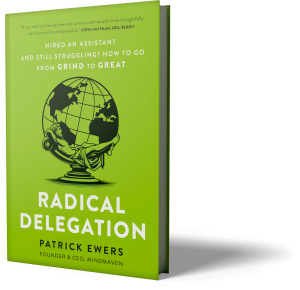
“Look, I’m a passionate entrepreneur. I’m like fire and brimstone sometimes. And so there are times when I’ll go—I’ll get too into the weeds and too into the debate, because I’m so passionate about it.” – Travis Kalanick
By now, you’ve probably heard the news about Travis Kalanick’s resignation as Uber’s CEO. Ever since the news broke, it seems like most people are busy playing the blame game.
- How dare Uber?
- How dare Kalanick?
- How dare the investors?
And so on and so forth. But at the end of the day, who’s to blame and who isn’t doesn’t really matter. Personally, I think we should be having a different conversation. Instead of asking, “Who’s fault is this?” we should be asking, “What can we learn from this?”
- What can we as entrepreneurs learn from this?
- What can we as leaders learn from this?
- What can we as a community and industry learn from this?
That’s the question I asked and answered in this extensive Medium piece:
Travis Kalanick: Monster or Martyr? What Silicon Valley Can Learn from His Fate
If you’re a fan of Mindmaven methodologies and practicalities, head over and give it a read. Here’s a quick preview:
Imagine you’re driving down the 101 when, out of nowhere, a sports car flies up from behind and cuts you off, forcing you to swerve and slam on your breaks.
What’s the first thing you do after you regain control?
Probably express some clever combination of curses that ultimately amount to, “That guy’s an asshole.” But … Is he really? If you could teleport into the passenger seat of that sports car, you might tell a different story.
If you could, you’d see the driver with tears rolling down his face. He’s just received news that his wife of 33 years has been hospitalized following a heart attack. The doctors aren’t sure if she’ll make it and he’s on his way to the hospital, praying he makes it in time.
So now what? Is the guy still an asshole?
Granted: He probably shouldn’t have been driving if he couldn’t do so safely. But I believe, if you’re a human being with any amount of empathy, you’d probably feel his pain and recognize that, in the same situation, you might have done the same.
In this example, the driver behaves the way he does (driving erratically) due to external environmental factors (his wife’s heart attack). And in this moment, these environmental factors influence his behavior far more than his personality.
So here’s the question: Is it possible we’re doing the same thing to Travis?
Want to keep reading? Click here to check out the full article and learn …
- Why all CEOs and startups are only a few small steps away from repeating Uber’s and Kalanick’s mistakes,
- About the Fundamental Attribution Error, and how often our behavior is influenced by our environment rather than our personality,
- The power (and danger) of habits when establishing your culture,
If you enjoy the read, don’t forget to “recommend” the article by clicking the little heart on the left-hand-side of your screen. Have your own thoughts to add? I’d love to hear them. Add to the discussion by leaving them in the Medium comments.


